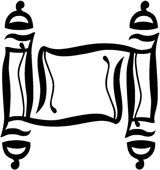
This week’s torah portion of Tazria-Metzorah discusses the laws of purity and impurity as they relate to giving birth and tzaraat (generally translated as leprosy). It explains that after a woman gives birth she is considered to be in a state of impurity. There are certain requirements she must meet to become pure again, such as going to the Mikvah.
Another state of impurity that is spoken about in this parsha is that of tzaraat. Tzaraat is described as a spiritual disease that is contracted after one speaks badly about another person (lashon hora). It physically manifests itself with symptoms similar to leprosy, such as white or pink patches on the skin. This spiritual illness helps us truly understand how terrible it is to speak badly about others. Speaking poorly about others only shows that you are jealous of them and unhappy with your own life.
Referring to these states as pure and impure is actually not the best possible translation. It is not about what we normally think of as “pure” and “impure.” When you look at any impurity in the Torah, it has to do with the potential for life that ceased for positive or negative reasons. It has nothing to do with the concepts of pure or impure as positive or negative. It’s actually the opposite. Impurity shows us a status of somebody that was surrounded by more life and is now missing it. Once they become pure again is when they returned to a “stable” more balanced position. According to this thought, we don’t look down at the impure, but we envy them.
When one speaks lashon hora, we know it’s as if he or she killed three people: the one spoken about, the one speaking and the one who is listening. Through this we understand the power of our words. With our own words, more than our hands, we take only from the potential of life.
By: Jack Esformes (11th grade)

Comments